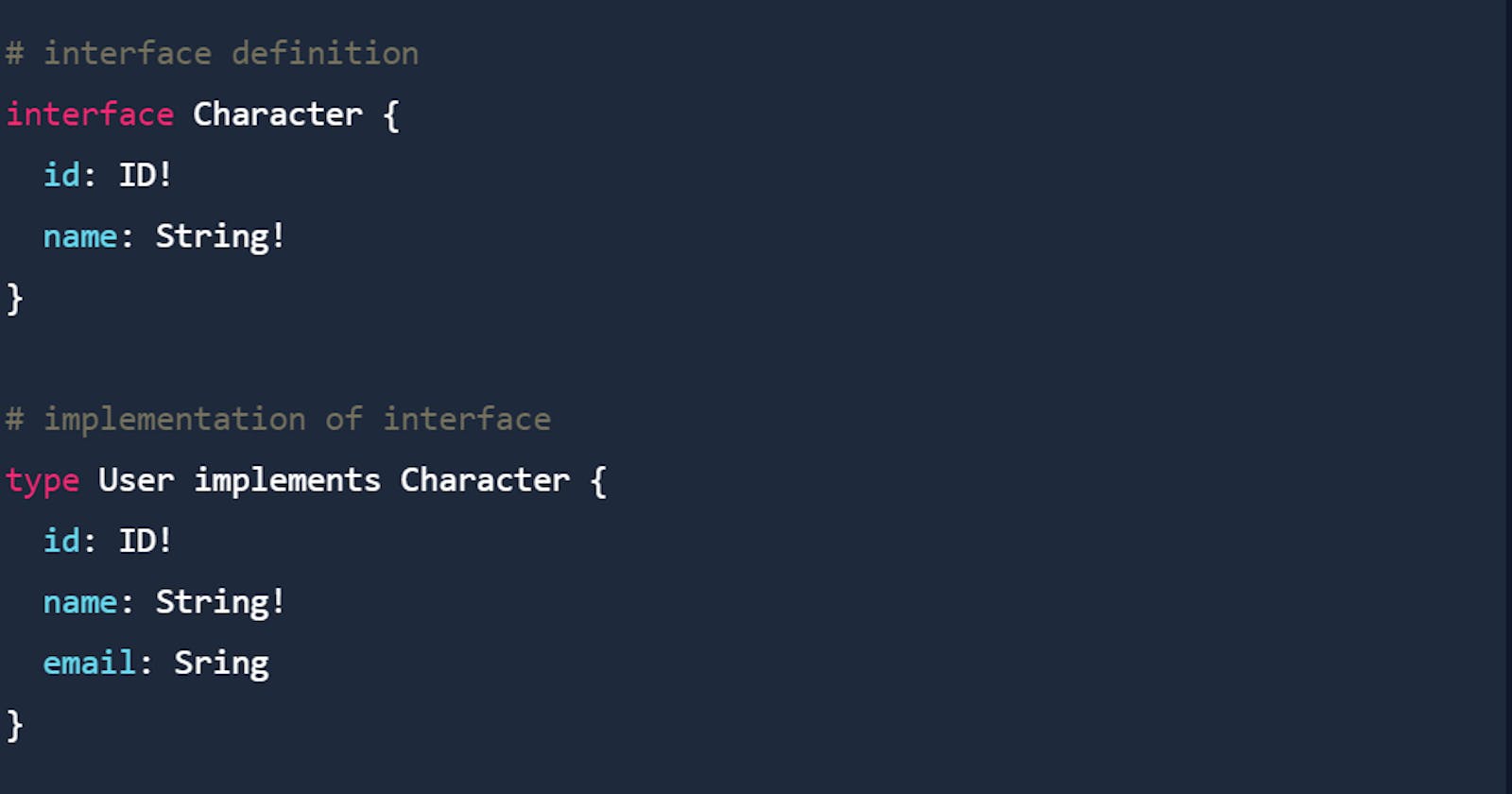GraphQL is a strongly typed language. Type System defines various data types that can be used in a GraphQL application.
Types in GrapqhQL
Scalar:
Scalars aren't just data types; they're the raw materials that store a single value. GraphQL comes with a set of default scalar types out of the box:
Int: A signed 32‐bit integer.Float: A signed double-precision floating-point value.String: A UTF‐8 character sequence.Boolean:trueorfalse.ID:IDsignifies unique identifier
scalar Date
# We defined Date as a scalar type
Object:
Objects aren't merely concepts, they're the blueprints for structured data. You can fetch objects from your service, and what fields it has.
type User {
id: ID!
username: String!
email: String!
posts: [Post]
}
# User type object contains various scalar type like username is of String,
# id is of ID Scalar type
Query:
Entry point type to other specific types i.e. you can use them to fetch other types that are defined in the schema
type Query {
getUser(id: ID): User
posts:[Post]
}
# getUser query will be used to fetch User type based on some parameter
# posts query will return array of Post type
Mutation:
The entry point for data manipulation, we generally use mutation for updating the data. They work the same way as Query does
type Mutation{
updatePost(id: ID): Post
}
# updatePost Mutation type will update the Post object type and return the updated Pst type
Enumeration:
Also called Enums, enumeration types are a special kind of scalar that is restricted to a particular set of allowed values. This allows you to:
Validate that any arguments of this type are one of the allowed values
Communicate through the type system that a field will always be one of a finite set of values
enum POST_STATUS{
PUBLISHED
DRAFT
ARCHIVE
}
# POST_STATUS type defined that POST_STATUS can only be one of the given items
Interfaces:
An Interface is an abstract type that includes a certain set of fields that a type must include to implement the interface
# interface definition
interface Character {
id: ID!
name: String!
}
# implementation of interface
type User implements Character {
id: ID!
name: String!
email: Sring
}
Union:
Union is a combination of 2 or more types, it is used where the result can be any of the combination item types
union SearchResult = User| Post
# union definition
# now SearchResult can either be User or Post types
